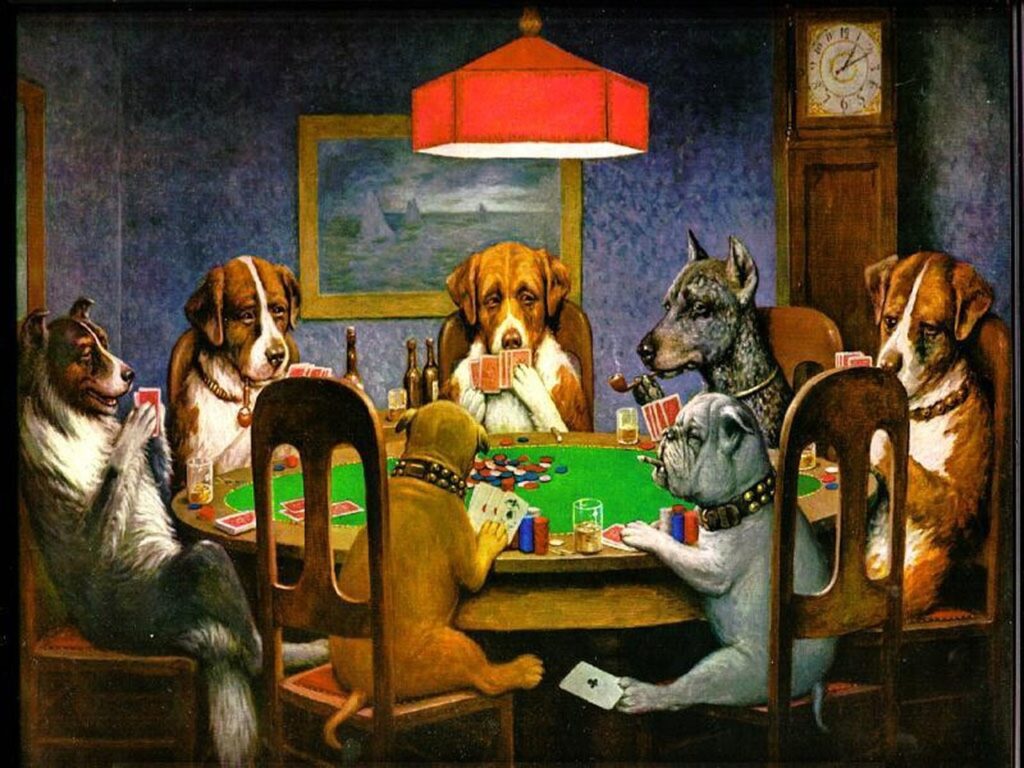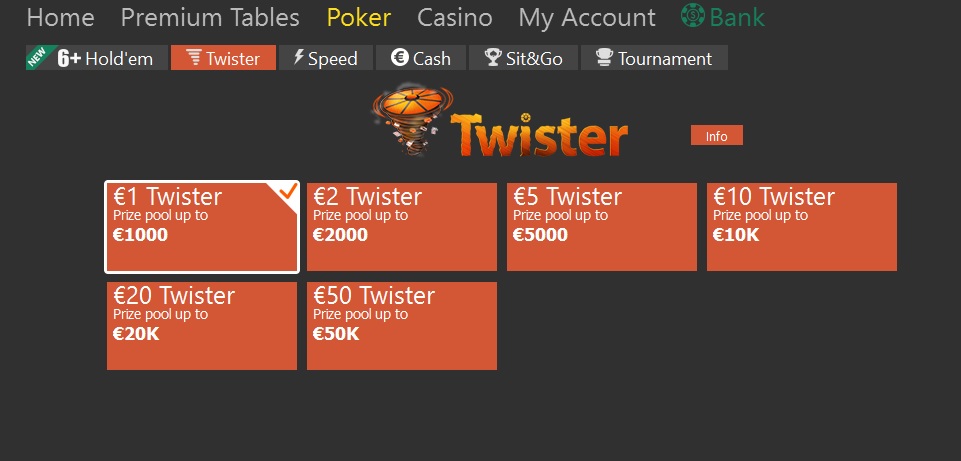Many people learned to play Texas Hold’em Poker during the poker boom of the early 2000s. However, if that passed you by, or you were too young to play back then, don’t worry.
Because here we are going to give you five practical steps to help you learn how to play Texas Hold’em Poker.
And beyond that, we are also going to give you some key advice to help you continue improving.
You can play a wide variety of different forms of Texas Hold’em Poker at bet365 Poker, alongside other forms of the game such as Omaha.
And if you are wondering if this is a tried and tested step-by-step method, then yes, it is! Because it is the refined version of the pathway I took when learning how to play the game to a decent level!

So let’s begin :-
10 Steps To Learning How To Play Texas Hold’em Poker
1.Learn The Key Rules of the Game
It is common sense that before you can get better at a game, you need to clearly understand the rules. Texas Hold’em Poker is no different. If you are a complete novice, then it is a good idea to familiarise yourself with the rules.
The good news is that Texas Hold’em is a very easy game to understand. So once you have learned about the dealer button, betting, your hole cards, the flop, turn and river and how things all inter-relate, you should familiarise yourself very well with the hand rankings.
Once you understand how the game of Texas Hold’em progresses through the different rounds of betting and you clearly understand the value of each potential hand in the game, now is a good time to actually put this basic knowledge to the test.
2. Play Socially

Of course, there’s a big difference between knowing the key rules of Texas Hold’em and actually knowing how to play the game. That said, it is natural that you are going to want to play. So do so without risking any of your cash by playing socially.
Social media sites often offer a wide variety of free-to-play poker games, which will regularly give you credits to play with. You then take on other players playing Texas Hold’em to try and win more credits.
While these credits have no monetary value outside of the game itself, they do allow you to play Texas Hold’em as a complete beginner without risking anything.
Now after a while playing these games, you’ll probably feel a little fed up of losing and perhaps confused by some of the things people say at the table. So this point is a good time to move onto step three.
3. Read up on Basic Poker Strategy and Poker Terminology
Don’t worry about losing in social games of Texas Hold’em. Every new player does this as part of a learning curve. All we are doing playing these games is giving you experience of how a game progresses and the different types of players you can come up against at poker tables.
But it would be nice to win more, wouldn’t it? So now, head over to sites like www.nodepositpoker.co.uk and check out some of the top strategy guides aimed at beginners that are new to the game.
Some good suggestions to start off with include:
- 6 top tips for beginners starting to play online poker.
- 8 Rookie mistakes to avoid when you hit the poker tables for the first time.
- Baby I was born to fold
- Get Better at Poker Fast
- Developing a Sound Online Poker Strategy
- 5 Great Pieces of Advice for Poker Playing Noobs – Cash Games
- So It’s time to deposit at bet365 Poker
- Danger Hands in Poker – Why they are risky and how to play them
There are lots more useful articles on the site that deal with more complex poker strategies, such as the Art of Bluffing, articles on positive and negative expected value and more besides. There’s no need to read all of these more complex articles now, but you should know when would be beneficial for you to give them your attention!
4. Watch Live Poker Streams/TV Shows

Alongside reading about the game and its strategies, it is also extremely beneficial to log in to a site that offers either recorded videos of poker, or live poker streams.
Watching the very best players in the world play is an education for a novice player. You can see the range of hands they play, how they size their bets based on what hand they hold and just how often (or not) they bluff.
Of course, it doesn’t mean that by watching a few hours of tape, you are going to be the next Daniel Negreanu or Phil Ivey, but watching the best play will give you an idea of how the pro’s develop their game and give you a clear idea of the level of ability you need to attain in order to get really good at the game!
5. Join a Poker Room online
So we’ve learned about Texas Hold’em, played some social poker, read about strategy and hand values and we’ve also watched lots of poker games live or from recorded shows.
Once you have done this for a while and are ready for the next step, it is time to join a poker site.
Of course, there’s lots to choose from but what you should weigh up for any site you are considering is the following: –
- What is the reputation of the site?
- How many players play at the site?
- Do they offer tables, tournaments and other forms of Texas Hold’em specifically for beginner players?
- What is their Welcome Bonus like for new players?
- Are there other resources on the site that can help me improve my game still further?
- Do they offer a wide range of buy-in levels to suit all bankroll sizes?
Personally, I found the offer for new customers from bet365 Poker was an exceptionally good one.
6. Invited Friends Around for a Home Game

Playing online is fun and does help you improve, especially when you have real cash on the line, but it is not as much fun and lacks the immediacy of a home game.
So if you have some family and friends who either play poker, or who want to learn the game and who are willing to stump up a couple of pounds every month or so to play, then it is a great idea to get a home game running.
There may be some initial outlay required. I wouldn’t purchase a poker table immediately, but a nice piece of velvet cloth or similar that covers your table is a good idea. Also purchasing denominated poker chips, rather than the cheaper non-denominated ones, is also a far better option. You’ll also need a case to keep the chips in, a dealer button and of course a couple of sets of decent quality playing cards.
An ideal number for a home game is between 4 and 8 players and if you all chip in £5, you can have a prize of £15 (for 4 players) or £25 (for 8 players) for the winner and £5 or £15 for the runner up. Or you can go winner takes all which does give the heads-up final game a real sense of drama!
Playing home games are great because you are comfortable, you can control how much you all spend easily, thet are social and they give you the chance to practice other key poker skills you can’t practice online. Such as keeping a poker face or trying to read an opponent and gain an insight into the hand they hold.
I am convinced playing a home game once a month, for just a £5 or £10 buy in each time, massively helped my all-round poker game just as much as playing online.
7. Play Every Freeroll You Can Gain Entry Into
Regardless of which poker site you have joined, you should find that the site will offer Freeroll tournaments that you can play in entirely for free. Make sure that you play in EVERY freeroll event that you can, especially as a beginner on the site.
Freeroll events are no-risk poker games where you can be more experimental with your game than you can when you have money at the table. You can take more risks, knowing that if you lose, then you don’t lose any money.
Playing at the Freeroll tables is also a skill as many players play very differently when it is a Freeroll event, than they do when their cash is on the line. You’ll notice a lot of players going All-In very frequently in the early stages of a game compared to cash games.
Freerolls offer two benefits – more experience of playing Texas Hold’em, and a chance to win some cash to boost your bankroll, or another benefit, without risking any of your own cash.
8. Play A Variety of Lower Stakes Game

Now you have joined a site, it is time to make a deposit and start to play some of the smallest buy in game options you can find. Be sure to try cash table play, tournaments, Sit & Go games (and if you are at bet365 Poker, Twister Poker is another fun and short version of the game to try).
When you start a bankroll with your first deposit, it is a good idea to try and maximise the benefit of any Welcome Bonus available to you.
But, you should always adhere to responsible gambling, so if the maximum bonus requires a deposit that is more than you can afford to lose, then deposit what you can easily afford to lose.
Once you have a bankroll started, you then should play a wide range of types of game as possible to see which particular game type suits not only your style of play that you are developing, but also which fits in best with your work, home and social life.
9. Review Your Play Regularly
It is one thing playing Texas Hold’em, but you will only really begin to understand the how and why of how hands developed and why you won, or lost a hand, by reviewing your play frequently.
Obviously, this only works online where your Hand History can give you a fantastic insight into how certain hands played out and how other players got the better of you, or how you managed to get the better of them.
A little time reviewing your plays from recent online games is important feedback for you. It can highlight strengths and weaknesses in your game, as well as doing likewise for players you may bump into again in the future at the tables.
10. Always Play Responsibly
We have hit upon this already, but it is absolutely vital that you retain a degree of common sense when starting to learn about Texas Hold’em or indeed any form of poker.
That means that you should only buy entry into tournaments that you can easily afford to and which, ideally, are better suited to your skill level. Even if you are a very wealthy novice Texas Hold’em player, you will still be foolish to pay for a £500 buy in into a big money event against established, experienced and talented poker players. Playing 500, £1 buy in events is a much better way of spending that kind of money as if offers you far more experience and against the players of an ability level most likely to be akin to your own.
Similarly, if you lose money in a cash game, then don’t chase your losses. You should always view money you use playing poker as money you have already spent.
Then any money you have left in your wallet at the end of the day, is a bonus!
There’s no superfast way to becoming a top-level poker player. It requires a lot of work, patience, common-sense, diligence and time to hone these skills. But this ten step guide should put you on the right track towards becoming a solid Texas Hold’em player.




































